A reminder that traders who buy and sell goods – wholesalers or retailers – need to be wary of the financial consequences if, as expected, pent up consumer activity leads to a surge in demand for your products from July 2021 or earlier if you can trade before 21st June 2021.
What is overtrading?
Let’s assume that the past year’s disruption has meant you have run-through your cash reserves and you basically have little in the way of liquid (cash) resources.
If you suddenly start selling at volume, with no stocks to supply orders, you may have to buy-in product or raw materials to fulfil your customers’ demands.
Wages and other costs will have to paid and your suppliers may insist on tight payment terms.
If you are offering credit terms in excess of those allowed by suppliers, the demands on your cash flow may exhaust your reserves, as cash in from customers will not – initially – cover your outgoings.
Retailers who are paid at point of sale should avoid over-trading. Those businesses most at risk are buying and selling goods, have significant fixed costs to meet and offer credit terms to customers in excess of those agreed with suppliers.
Eventually, overtrading will fix itself as the profit your increased activity generates find its way into your bank account. But you need to work out if your cash flow needs support from you or your bank until this much needed profit reaches your bank account.
We can help. Producing realistic business forecasts will identify periods when overtrading may rear its head. Please call so we can discuss your options.
Once the present lock-down is eased, those businesses that have manged to weather the disruption will be eager to start selling.
Sales will be the indicator that receives the most attention; sole-traders, partners and directors will be out of their starting blocks to be the first in their market sector to secure deals.
There will the temptation to relax terms and conditions in order to win these early sales. For example, firms could offer their customers 90 days to pay their bills in order to convert sales.
Ironically, if businesses are successful in winning new sales, those that are most successful will be in danger from overtrading. Even if the sales produced are profitable on paper, a business can still go under if it trades its way out of cash, out of liquidity.
How can this happen?
During lock-down, many businesses will be faced with paying fixed costs – rent for example – even if turnover has reduced or been eliminated due to Coronavirus disruption. Government schemes to assist with rates and payroll costs will help, but many businesses will be loss making.
These losses will reduce cash reserves and in some cases, firms will be obliged to lend money to fund these losses; if they want their businesses to survive.
When we come out of lock-down, and sales pick-up, it may be some time before these sales actually reach our bank accounts, especially, if we are tempted to offer extended credit in order to win sales.
Consequently, the extra sales may not generate cash inflows at a fast enough rate to meet current costs, and as most businesses will be entering this post lock-down period with depleted or exhausted reserves, unpaid creditors including your bank, may enforce a close-down in order to part recover their unpaid bills and loans.
This is overtrading and the way to avoid it is to adopt rigorous cash-flow management. This is a process that you can start now, before any upturn. If you need help designing the necessary spreadsheets, please call, we can help.

